'The Washington Post' warned the US against accepting his decision of not allowing former PMs Bhutto and Nawaz Sharif back into the country to contest polls.
WASHINGTON: Noting that Pakistan President Pervez Musharraf "appears to be weakening" and extremist groups like Taliban are "steadily strengthening," a leading daily here has warned the US against accepting his decision of not allowing former Premiers Benazir Bhutto and Nawaz Sharif back into the country to contest polls.
"The administration has been endlessly forgiving the strongman even as he has failed again and again to meet his commitments. If Mr Musharraf is now allowed to isolate himself behind riot police and militia forces while shunning secular democrats, he will set the stage for just the sort of nightmare scenario in Pakistan that has motivated US support for him since 2001," The Washington Post said in a lead editorial titled 'Pakistan's Peril.'
"After nearly eight years in power, Pakistani strongman General Pervez Musharraf appears to be weakening. Mass demonstrations broke out against him this month in Punjab, the country's political heartland; tens of thousands at a time are turning out to cheer a Supreme Court judge (suspended Chief Justice Iftikhar M Chaudhry) who tried to investigate human rights abuses and then rejected the General's demand that he resign. Extremist groups, including the Taliban, are steadily strengthening, especially in areas near the Afghan border," The Post said.
It said: "Support for the government in the US Congress, which has signed off on more than $10 billion in aid since 2001, is steadily fading amid persistent reports that the Pakistani army is failing to stop, and may even be supporting, Taliban operations against US troops in Afghanistan."
The paper pointed out that Musharraf's response to the developing situation in the country has been to unleash the party militias and the riot police.
"Not only Gen Musharraf and his dogged supporters in the Bush administration have reason to worry about these developments. One reason the General is unpopular is his alliance with the United States, and the candidates to succeed him and control Pakistan's nuclear arsenal include Islamic fundamentalists and anti-Western Generals.
"Gen Musharraf appears inclined to use force to bolster his regime -- demonstrators have been attacked by party militias or police in several cities -- and that may seem preferable to the extremist alternatives," The Post said.
But, it said, "Force is not the General's only option or the one most likely to succeed. Pakistan has a strong democratic alternative, in the form of two large secular political parties that between them governed the country for most of the 1990s. Though their records are far from unblemished, both share Mr Musharraf's goals of turning back Islamic extremism in Pakistan, reconciling with India and maintaining an alliance with the United States."
"Both have a large popular following: the Pakistan People's Party, headed by former PM Benazir Bhutto, made a strong showing in the last parliamentary election in 2002, and is likely to finish first this year if scheduled elections are free and fair.
"Bhutto has discussed a deal with Mr Musharraf in which she would accept his plan to extend his term as President for another five years if he drops criminal charges against her, holds fair elections and gives up his post as army commander-in-chief," the paper said.
An alliance with the "secular democrats could give Gen Musharraf the political foundation he needs to remain in office and take stronger action against the Taliban and al-Qaeda. Yet the General seems to be turning his back on the option. Last week he told a television interviewer that neither Ms Bhutto nor former prime minister Nawaz Sharif of the Pakistan Muslim League would be allowed to return from exile before the elections," the paper said.
"The General evidently plans to stage his own re-election without them and to manipulate the subsequent parliamentary vote to check their influence, just as he did in 2002," the editorial claimed.
The Bush administration, "which has pressed Gen Musharraf to come to terms with the secular parties, should not accept this decision," The Post warned.
![submenu-img]() Ramesh Awasthi: Kanpur's 'Karma Yogi' - Know inspirational journey of 'common man' devoted for society
Ramesh Awasthi: Kanpur's 'Karma Yogi' - Know inspirational journey of 'common man' devoted for society![submenu-img]() Tovino Thomas accused of stopping his film Vazhakku's release by director Sanal Kumar Sasidharan: 'The agenda of...'
Tovino Thomas accused of stopping his film Vazhakku's release by director Sanal Kumar Sasidharan: 'The agenda of...'![submenu-img]() PM Modi wears turban, serves langar at Gurudwara Patna Sahib in Bihar, watch
PM Modi wears turban, serves langar at Gurudwara Patna Sahib in Bihar, watch![submenu-img]() Anil Ambani’s debt-ridden Reliance’s ‘buyer’ now waits for RBI nod, wants Rs 80000000000…
Anil Ambani’s debt-ridden Reliance’s ‘buyer’ now waits for RBI nod, wants Rs 80000000000…![submenu-img]() Man in bizarre jeans dances to Tinku Jiya in crowded metro, viral video makes internet furious
Man in bizarre jeans dances to Tinku Jiya in crowded metro, viral video makes internet furious![submenu-img]() Maharashtra Board HSC, SSC Results 2024: MSBSHSE class 10, 12 results soon at mahresult.nic.in, latest update here
Maharashtra Board HSC, SSC Results 2024: MSBSHSE class 10, 12 results soon at mahresult.nic.in, latest update here![submenu-img]() Meet IIT-JEE topper who passed JEE Advanced with AIR 1, decided to drop out of IIT due to…
Meet IIT-JEE topper who passed JEE Advanced with AIR 1, decided to drop out of IIT due to…![submenu-img]() Meet IPS Idashisha Nongrang, who became Meghalaya's first woman DGP
Meet IPS Idashisha Nongrang, who became Meghalaya's first woman DGP![submenu-img]() CBSE Results 2024: CBSE Class 10, 12 results date awaited, check latest update here
CBSE Results 2024: CBSE Class 10, 12 results date awaited, check latest update here![submenu-img]() Meet man, who was denied admission in IIT due to blindness, inspiration behind Rajkummar Rao’s film, now owns...
Meet man, who was denied admission in IIT due to blindness, inspiration behind Rajkummar Rao’s film, now owns...![submenu-img]() DNA Verified: Is CAA an anti-Muslim law? Centre terms news report as 'misleading'
DNA Verified: Is CAA an anti-Muslim law? Centre terms news report as 'misleading'![submenu-img]() DNA Verified: Lok Sabha Elections 2024 to be held on April 19? Know truth behind viral message
DNA Verified: Lok Sabha Elections 2024 to be held on April 19? Know truth behind viral message![submenu-img]() DNA Verified: Modi govt giving students free laptops under 'One Student One Laptop' scheme? Know truth here
DNA Verified: Modi govt giving students free laptops under 'One Student One Laptop' scheme? Know truth here![submenu-img]() DNA Verified: Shah Rukh Khan denies reports of his role in release of India's naval officers from Qatar
DNA Verified: Shah Rukh Khan denies reports of his role in release of India's naval officers from Qatar![submenu-img]() DNA Verified: Is govt providing Rs 1.6 lakh benefit to girls under PM Ladli Laxmi Yojana? Know truth
DNA Verified: Is govt providing Rs 1.6 lakh benefit to girls under PM Ladli Laxmi Yojana? Know truth![submenu-img]() Remember Harsh Lunia? Just Mohabbat child star, here's how former actor looks now, his wife is Bollywood's popular...
Remember Harsh Lunia? Just Mohabbat child star, here's how former actor looks now, his wife is Bollywood's popular...![submenu-img]() Mother's Day 2024: Bollywood supermoms who balance motherhood, acting, and run multi-crore businesses
Mother's Day 2024: Bollywood supermoms who balance motherhood, acting, and run multi-crore businesses![submenu-img]() Rocky Aur Rani's Golu aka Anjali Anand shocks fans with drastic weight loss without gym, says fitness secret is...
Rocky Aur Rani's Golu aka Anjali Anand shocks fans with drastic weight loss without gym, says fitness secret is...![submenu-img]() In pics: Ram Charan gets mobbed by fans during his visit to Pithapuram for ‘indirect campaign’ for uncle Pawan Kalyan
In pics: Ram Charan gets mobbed by fans during his visit to Pithapuram for ‘indirect campaign’ for uncle Pawan Kalyan![submenu-img]() Streaming This Week: Yodha, Aavesham, Murder In Mahim, Undekhi season 3, latest OTT releases to binge-watch
Streaming This Week: Yodha, Aavesham, Murder In Mahim, Undekhi season 3, latest OTT releases to binge-watch![submenu-img]() Haryana Political Crisis: Will 3 independent MLAs support withdrawal impact the present Nayab Saini led-BJP government?
Haryana Political Crisis: Will 3 independent MLAs support withdrawal impact the present Nayab Saini led-BJP government?![submenu-img]() DNA Explainer: Why Harvey Weinstein's rape conviction was overturned, will beleaguered Hollywood mogul get out of jail?
DNA Explainer: Why Harvey Weinstein's rape conviction was overturned, will beleaguered Hollywood mogul get out of jail?![submenu-img]() What is inheritance tax?
What is inheritance tax?![submenu-img]() DNA Explainer: What is cloud seeding which is blamed for wreaking havoc in Dubai?
DNA Explainer: What is cloud seeding which is blamed for wreaking havoc in Dubai?![submenu-img]() DNA Explainer: What is Israel's Arrow-3 defence system used to intercept Iran's missile attack?
DNA Explainer: What is Israel's Arrow-3 defence system used to intercept Iran's missile attack?![submenu-img]() Tovino Thomas accused of stopping his film Vazhakku's release by director Sanal Kumar Sasidharan: 'The agenda of...'
Tovino Thomas accused of stopping his film Vazhakku's release by director Sanal Kumar Sasidharan: 'The agenda of...'![submenu-img]() Ratna Pathak Shah calls Guru Dutt and Bimal Roy's films 'offensive', says, 'women are constantly...'
Ratna Pathak Shah calls Guru Dutt and Bimal Roy's films 'offensive', says, 'women are constantly...'![submenu-img]() Shreyas Talpade recalls how he felt bad when his film Kaun Pravin Tambe did not release in theatres: 'It deserved...'
Shreyas Talpade recalls how he felt bad when his film Kaun Pravin Tambe did not release in theatres: 'It deserved...'![submenu-img]() Anup Soni slams his deepfake video from Crime Patrol, being used to promote IPL betting
Anup Soni slams his deepfake video from Crime Patrol, being used to promote IPL betting![submenu-img]() Real story that inspired Heeramandi: The tawaif who helped Gandhi fight British Raj, was raped, abused, died in...
Real story that inspired Heeramandi: The tawaif who helped Gandhi fight British Raj, was raped, abused, died in...![submenu-img]() Man in bizarre jeans dances to Tinku Jiya in crowded metro, viral video makes internet furious
Man in bizarre jeans dances to Tinku Jiya in crowded metro, viral video makes internet furious![submenu-img]() Lift collides with roof in Noida society after brakes fail, 3 injured
Lift collides with roof in Noida society after brakes fail, 3 injured![submenu-img]() Zomato CEO Deepinder Goyal invites employees' moms to office for Mother's Day celebration, watch
Zomato CEO Deepinder Goyal invites employees' moms to office for Mother's Day celebration, watch![submenu-img]() This clip of kind woman feeding rotis to stray cows will bring tears of joy to your eyes, watch
This clip of kind woman feeding rotis to stray cows will bring tears of joy to your eyes, watch![submenu-img]() Viral video: Seagull swallows squirrel whole in single go, internet is stunned
Viral video: Seagull swallows squirrel whole in single go, internet is stunned



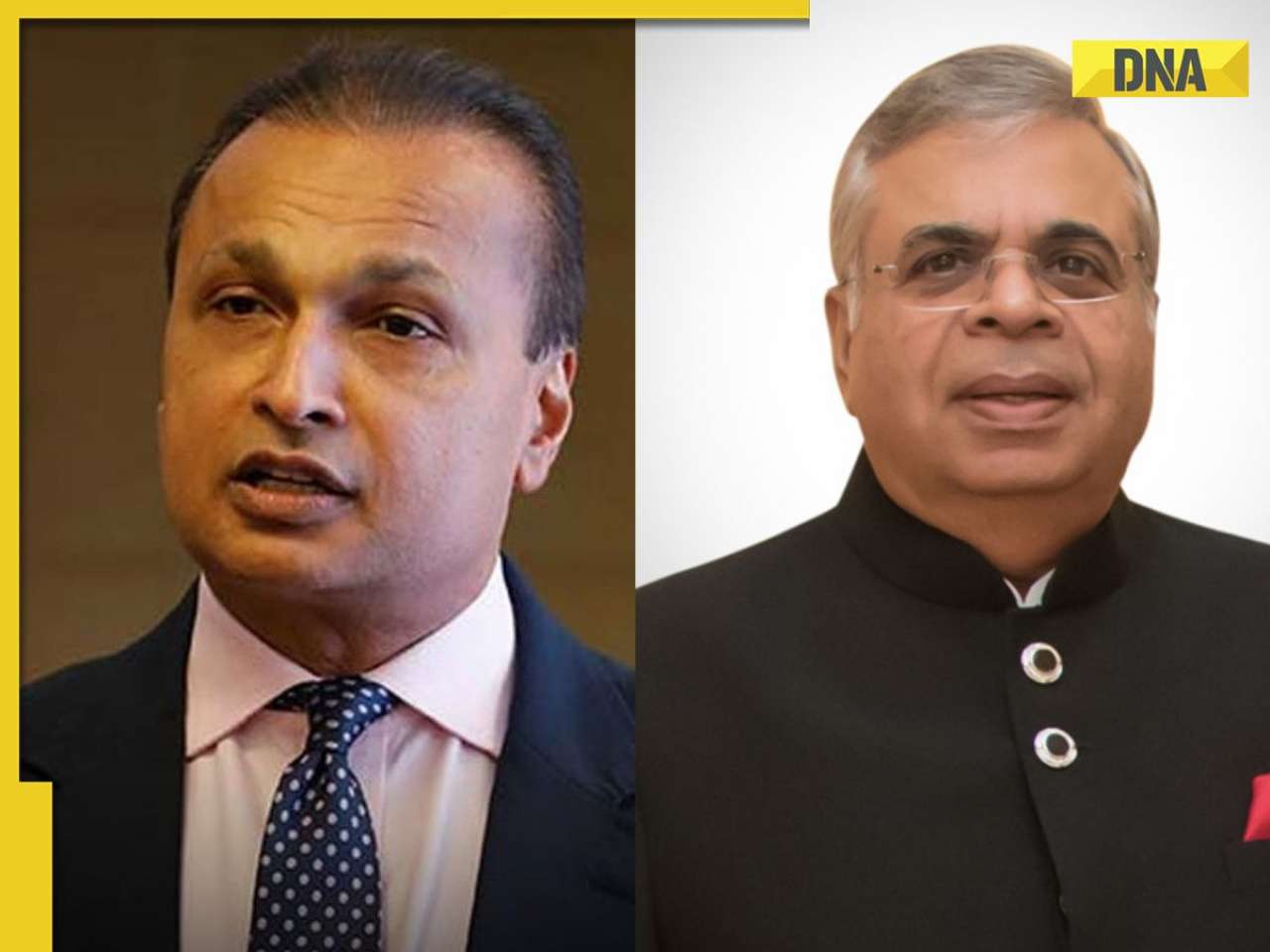








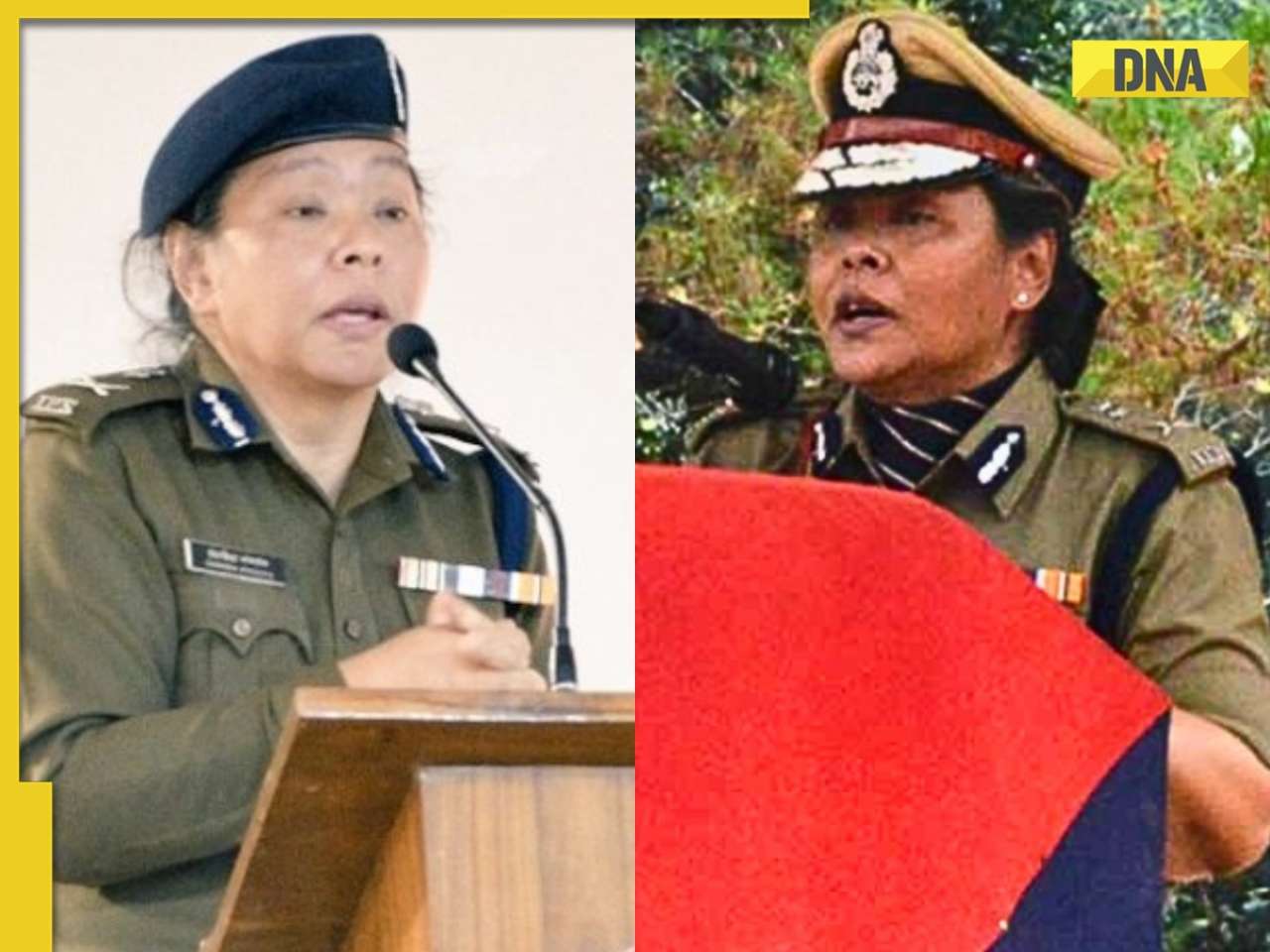

















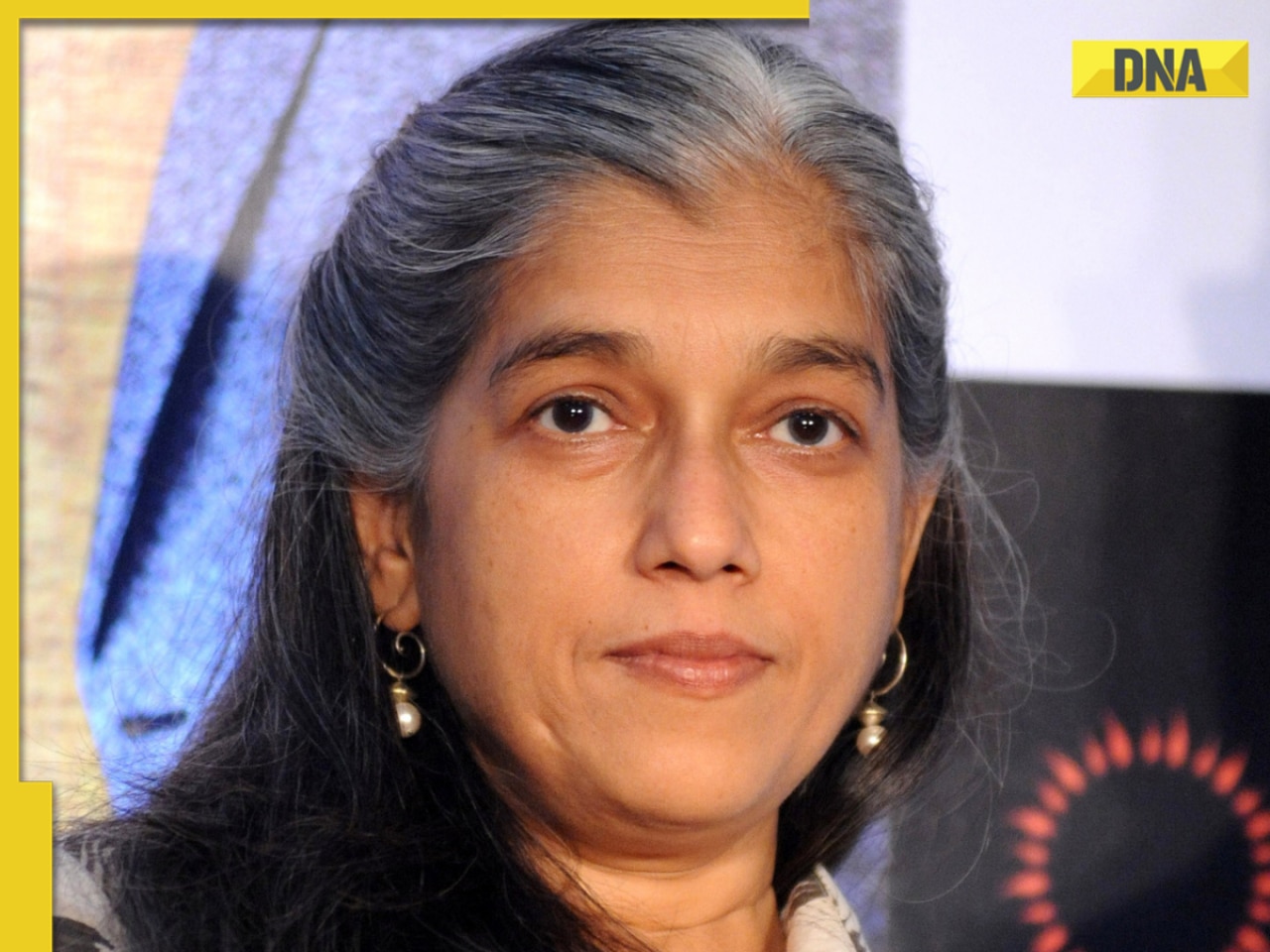



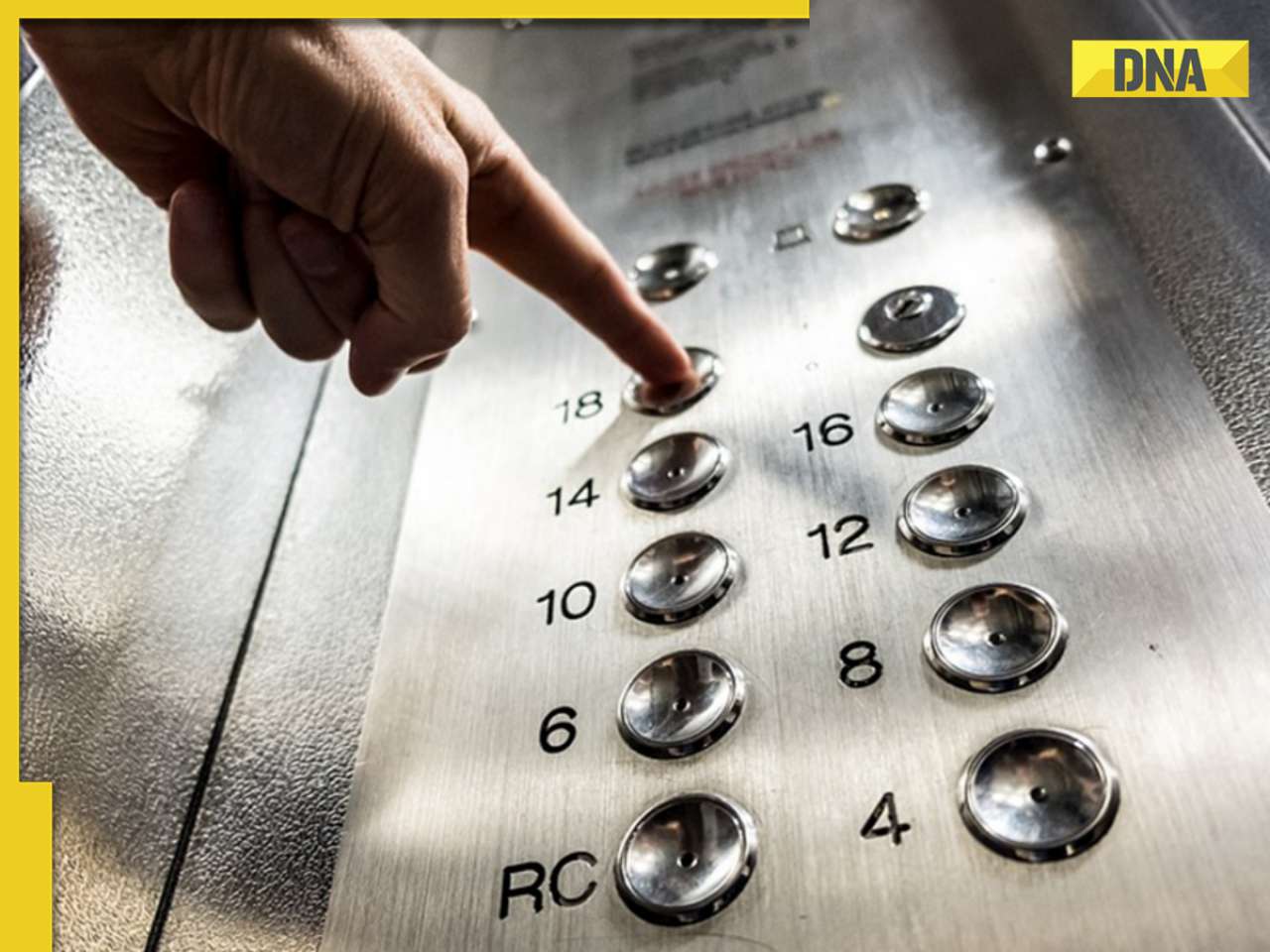















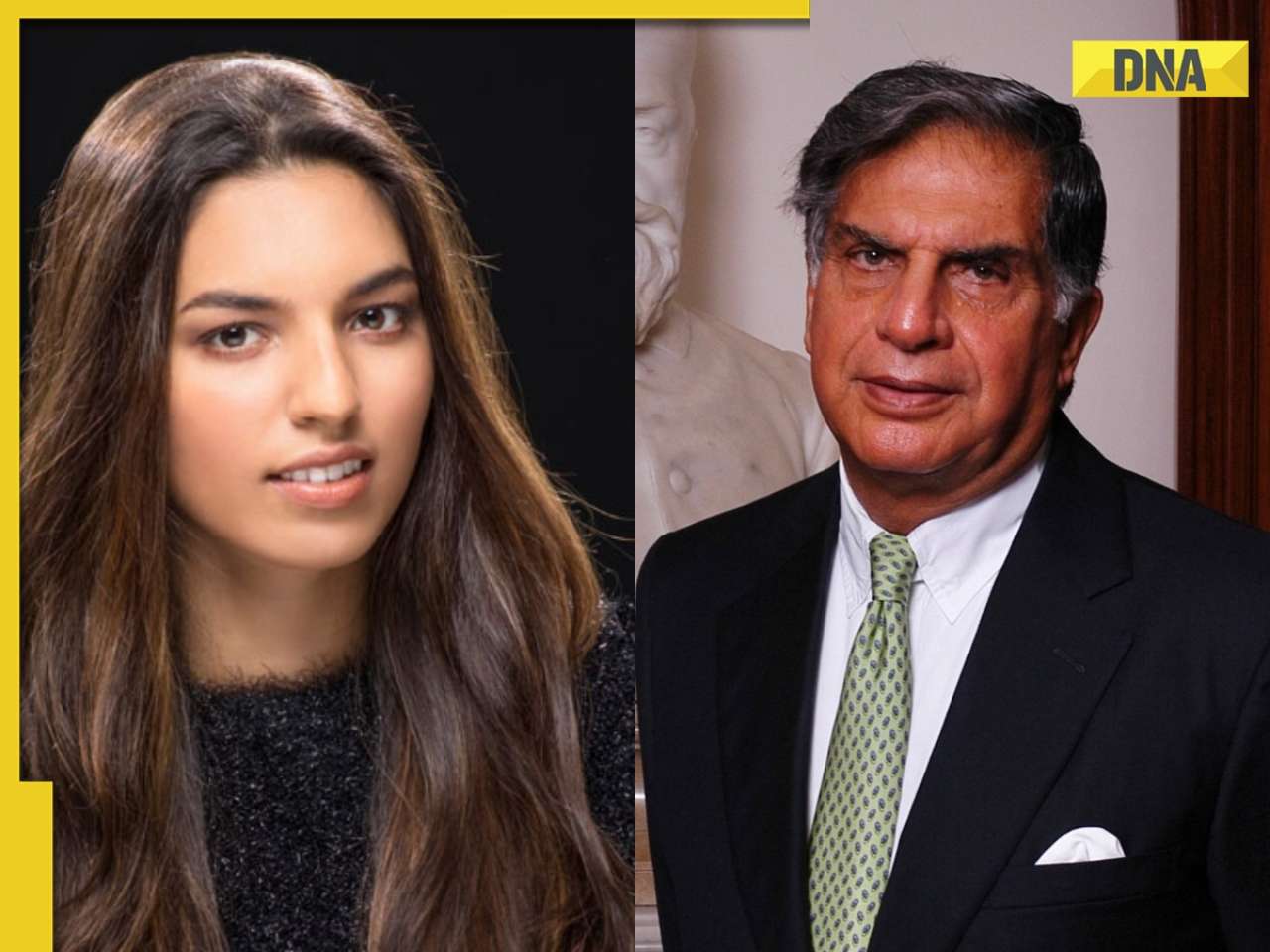





)
)
)
)
)
)